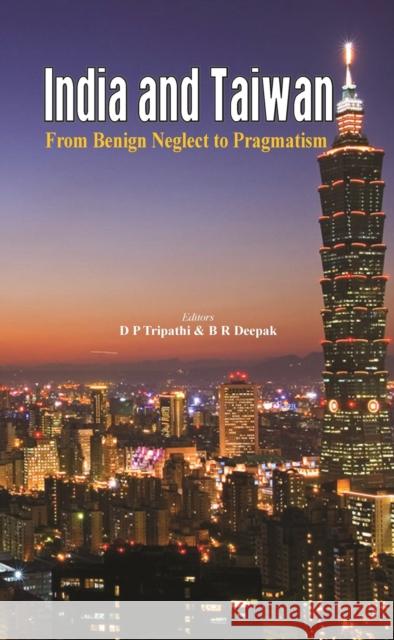India and Taiwan: From Benign Neglect to Pragmatism » książka
India and Taiwan: From Benign Neglect to Pragmatism
ISBN-13: 9789384464837 / Angielski / Twarda / 2016 / 244 str.
India and China, the cultural cousins of the past were reduced to colonial cousins during the 19th century by the British colonialists. If the colonial connections strengthened the bonds between the Indian and Chinese people during the 19th century, the same sowed the seeds of conflict during the 20th century. India wished to forge alliance with the nationalist as well as the communist China; however, the colonial legacy denied that alliance with both the parties. India s hobnobbing with Taiwan in the wake of the 1962 hostilities did not go unnoticed in Beijing, however, after the relations were restored between India and China in mid 1970s, India became cautious and remains so developing more intimate relations with Taiwan, albeit there is a momentum as far as cultural and educational ties are concerned. India and Taiwan: From Benign Neglect to Pragmatism is a collection of eleven essays by eminent Indian and Taiwanese scholars, as well as research scholars who look at the multifaceted relationship between India and the Republic of China and contemporary Taiwan from strategic, trade, economics, educational and cultural perspectives. This has been a multilayered relationship where there are shades of support and sympathy, cooperation and conflict, attempts to befriend enemy s enemy briefly, and now seeking more depth as regards security, trade, cultural and educational etc. arenas are concerned. However, China remains a factor, and both are not willing to cross the red line when we talk about relations between the two. Major areas covered in this volume pertain to India and the ROC prior to the establishment of the People s Republic of China, which includes perceptions on Tibet issue, quest for alliance, Chiang Kai-shek and the India-China-Burma theatre of war, the then ROC ambassador to India, Luo Jialun paying his last respect to Gandhi in 1948; India-Taiwan security and trade relations; experiences of developmental states in India and Taiwan; educational and cultural cooperation between India and Taiwan; Taiwan studies in India, the future direction of the India-China relations, and if Taiwan could play a bit of its role here. The collected essays are pertinent, as they help us to understand the past as well as present scenarios between India and the ROC on one hand and India and Taiwan on the other. These are also relevant to any researcher delving into the India-China relations."











